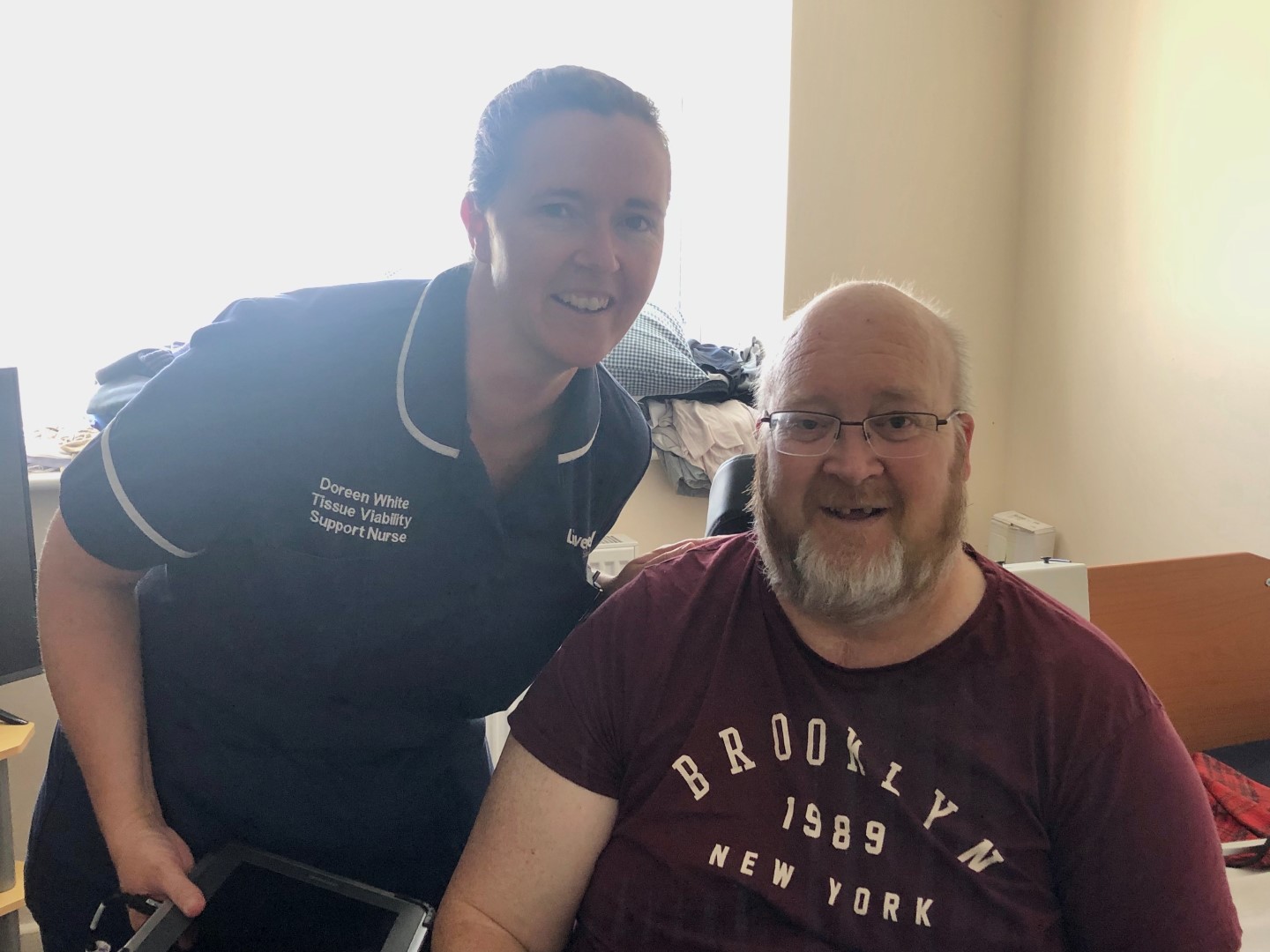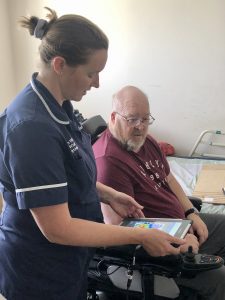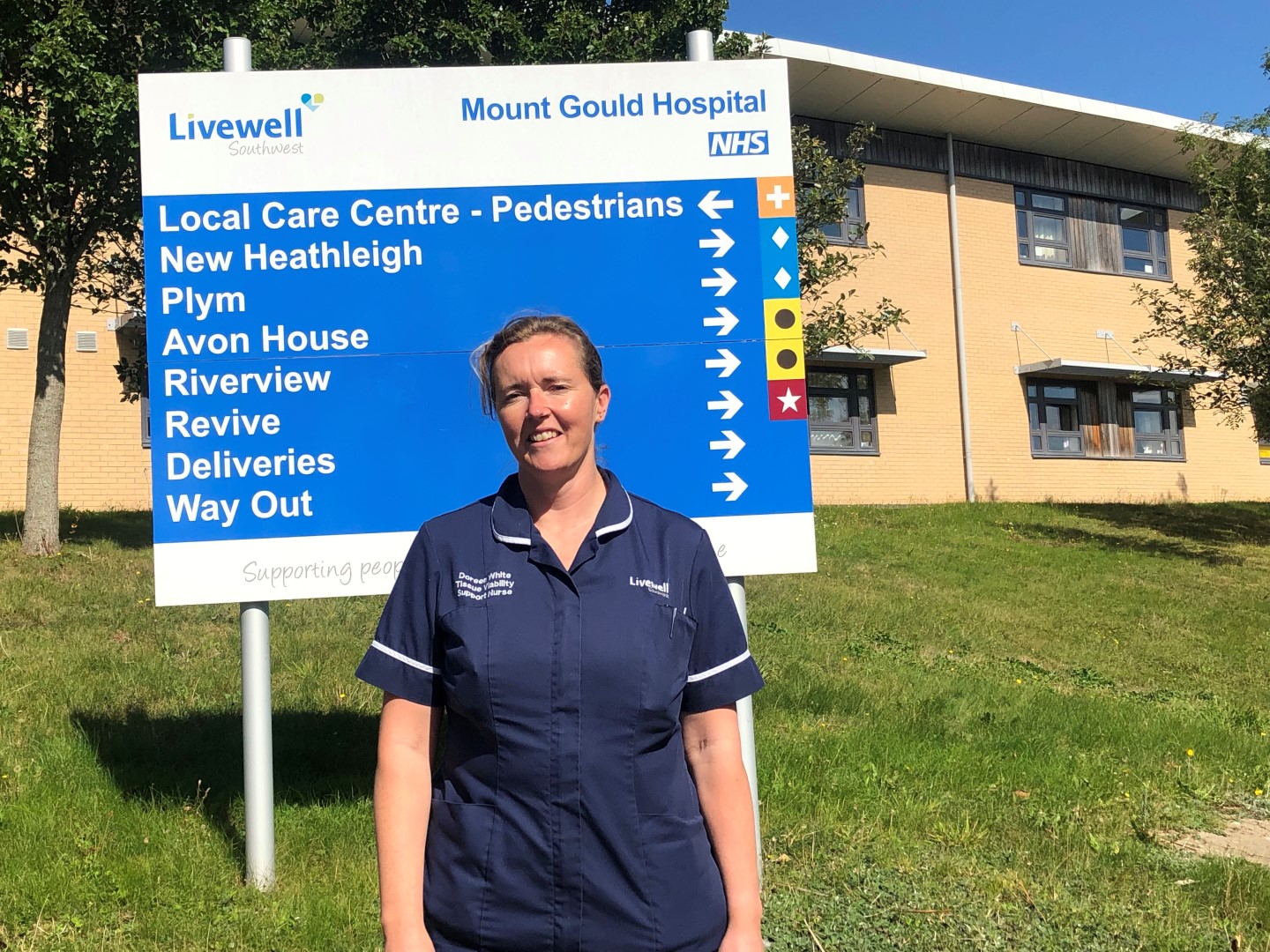Livewell Southwest’s Tissue Viability Team is taking part in an exciting Quality Innovation project called the PROMISE project, which aims to find out if pressure monitoring can prevent and improve pressure sores.

Victor is wheelchair bound and part of Livewell’s PROMISE project. Victor said:
“Since being cared for by the team at Livewell and having had the opportunity to be pressure mapped, I’ve seen improvements in my wounds.
“Before the project, I was sat in my chair for 10 hours a day and my pressure sores got progressively worse. The project has taught me how to position myself to aid healing and prevent the deterioration of my ulcers.
“The seat and bed monitors flagged up that my old equipment wasn’t appropriate and led to a new and improved wheelchair and mattress.
“I’m now leading an independent life where I can pop into town to get some shopping and I’m hoping to join a gym to improve my upper body strength and general health and wellbeing.”

PROMISE stands for Pressure Reduction through COntinuous Monitoring In the Community SEtting. The project rolls out the use of mattress and chair sensors in people’s homes, which continuously measure and record their body surface pressures. The chairs and mattresses are linked to a computer which displays the pressure in real time and shows areas of the body that are under sustained pressure. This helps the person or carer to better understand the positions that are likely to reduce the risk of pressure ulcers.
Cornwall Partnership NHS Foundation Trust is the lead organisation to deliver the PROMISE project and have partnered up with Livewell, Redruth District Nursing Team, Torbay and South Devon NHS Foundation Trust and Somerset Partnership NHS Foundation Trust, aiming to recruit 100 patients into the project.
Livewell’s Tissue Viability Team is caring for 17 people as part of the project.
Doreen White, Tissue Viability Nurse said:
“Pressure monitors have been out there for a long time, but historically it’s always been just a snapshot of 30 minutes or so, and we haven’t been able to look at the bigger picture, especially for bed or wheel chair bound people. The PROMISE project means that we can install a seated monitor for 24 hours and a bed monitor for 48 hours, which provides a clear picture of the pressure hot spots.
“Before this project, people with category three or four pressure ulcers were advised to have bed rest, but now, with the use of pressure mapping and pressure relieving equipment, we’re encouraging them to get up and out of bed and lead healthy, independent lives.
“Being out of bed for longer periods of time means that people can take part in increased rehabilitation, helping to heal and prevent pressure ulcers. We work with occupational therapists and physiotherapists and are able to provide advice and guidance on how a person should be positioned.
“It’s also really important to make sure that the pressure relieving cushions that people sit on are most appropriate for them. There’s a standard amount of air required to inflate some of the specialist cushions, and by pressure mapping we can adjust this to relieve pressure points. Pressure mapping means that we’re able to deliver person-centred care and tailor equipment to the person’s needs.
“The project has changed the way in which we work and we’re seeing positive healing rates.”
For more information about the PROMISE project click here.


